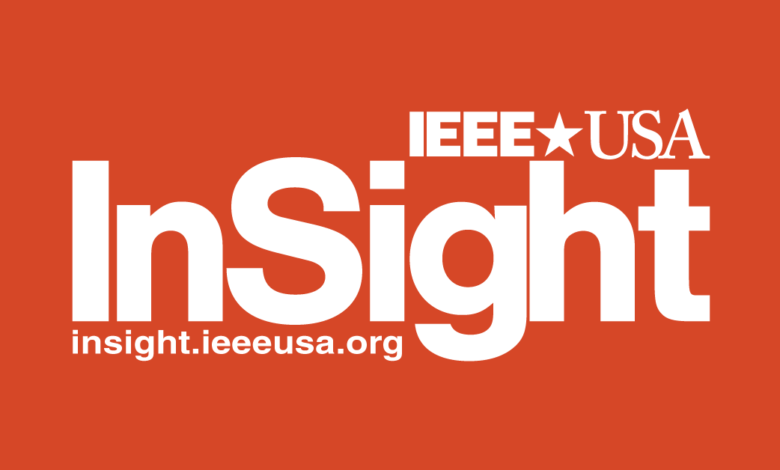
IEEE-USA has announced a new Government Fellowship to be added to the program in 2014-2015. The candidate selected will serve as a United States Agency for International Development (USAID) Engineering & International Development Fellow. The Fellowship will offer an opportunity for the science, technology and engineering community to provide valuable technical expertise to USAID, while learning about and contributing to the foreign policy process.
A goal of the presidential administration is to elevate development as a tool of U.S. foreign policy and national security, along with defense and diplomacy, to ensure the United States’ effective global engagement. USAID’s approach includes developing and delivering scientific and technical breakthroughs to solve world development problems. Science and technology are a USAID priority, reflecting the overriding objectives of U.S. global development policy. Grand challenges for development are critical, solvable problems for development. The first grand challenge of saving lives at birth was launched in 2011. Additional grand challenges for development on agriculture, energy, internet connectivity, and water are at various stages of development. USAID is leading the effort to leverage its own and others’ capacity to solve development problems–such as food security, climate change and biodiversity. Fellows will provide scientific, technical and intellectual leadership and analytical support contributing to the advancement of USAID’s mission.
IEEE-USA will continue to award Congressional and Engineering & Diplomacy Fellowships, with those Fellows serving as advisors to Congress and to the State Department. Since the Fellowship program’s inception, more than 90 U.S. IEEE members have served as Government Fellows. Historically, these Government Fellows have come from a wide spectrum of scientific and engineering disciplines, and are at varied stages of their careers. The program was established in 1973 to encourage interest and participation in public policymaking by IEEE members.
New Fellows are given a two-week orientation under the auspices of the American Association for the Advancement of Science (AAAS) in the September preceding their fellowship year. Participants in the orientation include all Congressional and Executive Branch Fellows selected by professional organizations that partner with AAAS. AAAS continues to organize events and learning experiences for the Fellows throughout the year. IEEE-USA contracts with AAAS for this service. The USAID Engineering & International Development Fellow will fully participate in this program as well.
Beginning with the 2014-2015 Fellowship year, the USAID Engineering and International Development Fellow will serve a one-year term, starting in September of each year. Requests to extend the term for a second year will be considered. The Fellowship is open to everyone from new IEEE members to Life Members, and from new Ph.Ds. to retirees with years of experience.
A joint IEEE-USA and USAID committee will review the finalists, with USAID giving final approval of the Fellow selection. During a competitive selection process, the committee will consider the following attributes when selecting USAID Fellows:
- Technical competence and professional experience
- Previous public service and public policy expertise
- Ability to work with minimal supervision
- Basic comprehension and understanding of the public policy process
- Evidence of service to IEEE and the engineering profession
- Ability to communicate technical and non-technical information clearly to scientists and engineers as well as to non-technical people
- Ability to use judgment in presenting options to senior USAID officials
- Demonstrated interest in foreign policy
- Foreign language proficiencies
- Ability to work collaboratively with a variety of individuals at different levels within and outside USAID on complex or politically sensitive issues
- Knowledge of international development and humanitarian assistance concepts, approaches, programs and issues
- Knowledge of engineering planning and design while taking into account feasibility and economics
- Experience in development is desirable, but not mandatory.
Applicants must also possess the following:
- Be a Regular Member of IEEE at the time of application. Student memberships do not qualify.
- Be a U.S. citizen at the time of application, or at the latest, prior to selection
- Possess or be able to obtain a security clearance prior to the beginning of the fellowship
- Be a practicing member of the engineering profession
- Possess a Bachelor’s degree, and a minimum of 10 years’ experience; a Master’s degree and a minimum of 5 years’ experience; or a Doctoral degree.
Click here for additional detail, as well as reports from former Fellows.
It is a tribute to the success of the Government Fellowship program that this additional Fellowship is to be awarded. Past Fellows have found the Fellowship experience to be pivotal in their careers. In many cases, it has launched new careers in science and public policy. Past Fellows have also contributed significantly to IEEE-USA’s efforts in providing counsel to government and advocacy for science and science-related public policy issues.
Sherry Gillespie, Ph.D., is past chair of the IEEE-USA Government Fellows Committee, and presently serves on the selection committee for new IEEE-USA Government Fellows. She is also vice-chair of the IEEE-USA Research and Development Policy Committee. Sherry was the IEEE-USA Congressional Fellow for 2008, serving as science advisor for Senator Joe Lieberman. Sherry spent her career in the semiconductor industry at IBM and then Motorola, where she was director of materials research and strategic technology. She currently consults on issues relating to science and public policy in the Washington, D.C. area. Sherry holds a Ph.D. in solid state physics and is a Senior Member of IEEE.
Jack Cederquist, Ph.D., is the current chair of the IEEE-USA Government Fellows Committee. Jack was an IEEE-USA Congressional Fellow in 2010, and worked on energy policy issues for Senator Jon Tester of Montana. He currently does research and development in optical/infrared remote sensing and sustainable energy. He earned his Ph.D. in electrical engineering from the University of California, San Diego, and is a Senior Member of IEEE.






